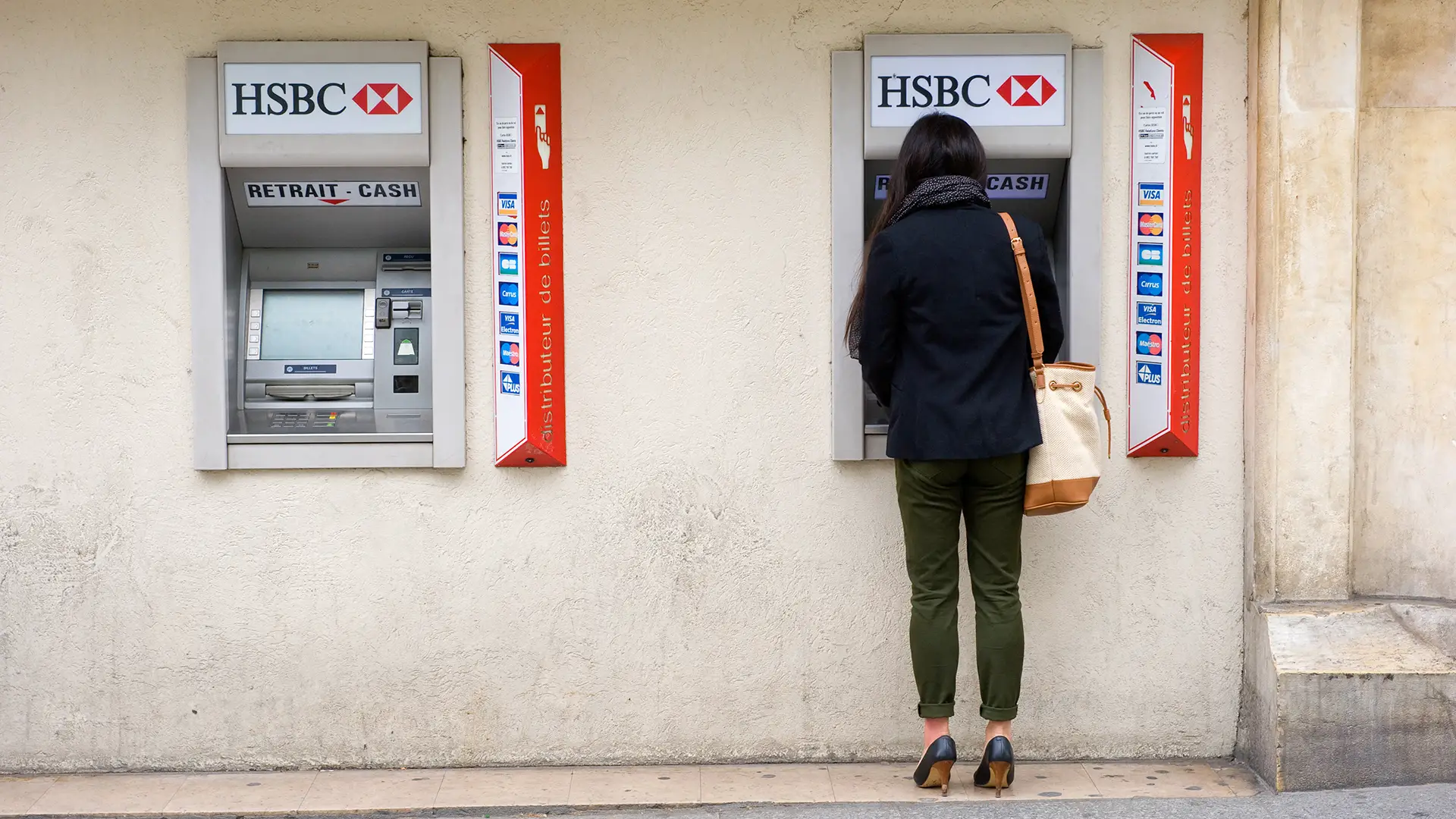Starting your career as an expat in France can be an exciting and rewarding adventure. The country offers a wealth of job opportunities, particularly in sectors like tourism, technology, and engineering. If you’re looking to land your dream job, you’ll first want to familiarize yourself with the French job market, polish up your CV, and tap into the right professional networks.
Read on for more information on these topics:
- The job market in France
- How to find jobs in France
- Assistance looking for employment in France: France Travail
- How do you apply for a job in France?
- What are the requirements to find work in France?
- Financial support while looking for a job in France
- Starting your job in France: important questions
- Useful resources
resume.io
Trying to land the job that will take you on your next big adventure? Make sure your application is top of the pile with Resume.io’s online resume builder. They provide resume templates, cover letter help, and more, making job applications effortless. Make it to the next round with Resume.io.
The job market in France
As of the third quarter of 2024, France’s job market exhibits signs of strain, with the unemployment rate slightly increasing to 7.4%, up from 7.3% in the previous quarter. Youth unemployment remains a significant concern, with a rate of 19.7% for young people ages 15 to 24.
The manufacturing sector is facing challenges, experiencing the sharpest decline in new orders since the COVID-19 pandemic. Political instability further complicates France’s economic landscape, potentially deterring foreign investment and affecting business confidence.

In France, job seekers encounter a competitive environment, with hurdles such as high youth unemployment and sector-specific downturns. However, certain industries, including technology and renewable energy, continue to offer opportunities, especially for those with relevant skills and adaptability.
What jobs are in demand in France?
France’s main industries include:
- Energy
- Manufacturing
- Tourism
- Agriculture
- Technology
Skills shortages have been reported in sectors including:
- Healthcare
- Construction and building trades
- Information technology
- Engineering
- Agriculture
The biggest French companies are:
- AXA
- TotalEnergies
- BNP Paribas
- L’Oréal
- Airbus
In addition to these, multinational companies with a strong presence in France include Amazon, Microsoft, and IBM.
Job vacancies for foreigners in France
France remains an attractive destination for expats, with immigrants comprising approximately 10% of the workforce. This proportion has been relatively stable, though recent years have seen a diversification in the reasons for immigration, including economic opportunities and education.
To entice foreign talent, France offers the Impatriate Tax Regime, providing favorable tax conditions for qualified professionals relocating for work. Additionally, the French Tech Visa facilitates the entry of tech entrepreneurs, employees, and investors.

Job opportunities for foreign workers are abundant in sectors facing labor shortages, such as construction, healthcare, information technology, engineering, agriculture, and manufacturing. Proficiency in multiple languages is particularly valued in tourism, hospitality, and customer service industries.
While specific data on salary discrepancies between nationals and non-nationals is limited, foreign workers often encounter challenges like temporary contracts and potential wage disparities. However, France’s commitment to labor rights and integration programs aims to mitigate these issues, fostering a more inclusive workforce.
Manage your international finances with Wise
As a foreign worker in France, managing your finances between your home country and France can be complex. Wise is an international money transfer service that can simplify this process by offering competitive exchange rates and low fees.
By using Wise, you can:
- Send money home: Easily and inexpensively send money from your French bank account back to your home country.
- Manage multiple currencies: The Wise multi-currency account allows you to hold, send, and spend money in over 40 different currencies, which is useful if you have financial ties to multiple countries.
- Pay French bills: You can use your Wise account to pay for things in France, like rent or utilities, without worrying about high bank fees.
Wise is designed to be transparent and is often a more cost-effective alternative to traditional banks for international transactions. It can be a useful tool for managing your finances efficiently as an expatriate in France.

How to find jobs in France
Expatica jobs in France
You can find suitable openings on the Expatica jobs board, which has a constantly updated list of jobs across France.
EURES
If you’re from the EU/EFTA, you can look for a job through EURES, the European Job Mobility Portal, which is maintained by the European Commission. As well as looking for work, you can upload your CV and get advice on looking for work in France.
Public job sites
France’s national employment agency, France Travail, offers comprehensive job listings and resources for job seekers, including foreign nationals authorized to work in France. Through their online portal individuals can register their resumes and access a wide array of job vacancies across various sectors nationwide.

Job websites in France
There are also various general job websites, including the following:
- Apec (Association pour l’emploi des cadres)
- Glassdoor France
- Indeed France
- Jobijoba
- Jobted
- Les Jeudis
- MeteoJob
- Monster France
- Welcome to the Jungle
English-speaking jobs
If you’re in search of an English-speaking job, there are a few dedicated sites that you can check to find the latest job openings:
Recruitment agencies
You can sign on with as many recruitment agencies as possible. Look for names and contact details of recruitment agencies in the Pages Jaunes (Yellow Pages) under cabinet de recrutement. Reputable companies will be members of the recruitment agencies’ professional body Prism Emploi.
You can also check out Expatica’s recruitment agency listings in our directory.
Foreign language teaching
English, German, and Spanish are all in demand, but getting a job in the French education system usually requires national qualifications. The British Council has information about becoming a foreign language assistant in French state schools. A teaching qualification (e.g., TEFL) or even a university degree and some experience may be sufficient for a position within a private language school or training agency.

You can also look for jobs on TEFL-associated websites such as TEFLToulouse or ESL Base.
Embassies and foreign organizations
Check out opportunities at the embassies and consulates in Paris. Most will expect a high standard of both spoken and written French.
The British Embassy and U.S. Embassy in Paris advertises jobs from time to time. As well as working on foreign policy issues, the embassy offers various services for British nationals in Paris including assistance with emergency travel documentation.
Make the first move: speculative applications
Speculative applications (candidatures spontanées) are considered a sign that you have the ambition to achieve and are looked upon favorably in France. Use the Pages Jaunes (Yellow Pages) to look for companies in your sector and check out the websites of international companies.
Self-employment and freelancing in France
Another option in France is to strike out on your own and work as either a freelancer or set up your own business. Just over 11.6% of the workforce in France is self-employed and it’s something that’s open to French and EU citizens as well as those from outside the EU/EFTA with French residency or the necessary permit.
You have two choices of self-employment in France: you can set yourself up as a sole trader (enterprise individuelle) where your business and personal finances are treated as the same; or you can set yourself up as a separate company (société) which is a separate legal entity. A société might have distinct advantages but bear in mind it comes with added filing responsibilities including annual corporation tax.
Traineeships, internships, and volunteering in France
University graduates can find EU-based traineeships via the European Commission Traineeships Office (Bureau de Stages); otherwise, you can search for internships and placements on AIESEC (for students and recent graduates in the UK) or IAESTE (for students in science, engineering, and applied arts). Internships can also be found at Globalplacement and Intern Abroad.

For those ages 17 to 30, you can find volunteer programs at the European Voluntary Service (EVS), where you work abroad for up to 12 months in exchange for board, food, insurance, and a small allowance. Concordia is another organization for volunteer opportunities. For holiday volunteering opportunities, check Workaway.
Jobs in France for Americans
If you’re an American looking for a job in France, explore job boards like LinkedIn, Glassdoor, or local sites such as Welcome to the Jungle and Indeed France. Industries with vacancies for English speakers include technology, tourism, and luxury goods, especially in international companies.
While proficiency in French can greatly improve your job prospects, some roles in multinational firms or English-speaking environments may not require it. Teaching English remains a popular option for Americans, particularly in private schools, language institutes, or through programs like the Teaching Assistant Program in France (TAPIF).
Jobs in Paris for Americans
Paris, a global hub for business and culture, offers diverse opportunities for Americans. Major industries include fashion, luxury goods, technology, and finance, with many internationals companies headquartered there.
If you’re looking for a job in Paris, it’s important to familiarize yourself with the city’s business districts, which include:
- La Défense: Europe’s largest business district, home to skyscrapers and major corporations in finance, energy, and IT.
- Quartier Central des Affaires: Located in central Paris near the Champs-Élysées, this district hosts prestigious firms in law, consulting, and media.
- Bercy: Known for public administration and tech startups, particularly in the digital economy.
- Marais and Sentier: Emerging hubs for creative industries, fashion, and startups.
Assistance looking for employment in France: France Travail
France Travail, formerly known as Pôle emploi, is France’s public employment service. This organization helps jobseekers find work, provides financial aid, and offers advice.

France Travail provides the general public with tools for career planning, skills assessment, and information on training programs to enhance employability. For personalized assistance, job seekers can visit local France Travail branches, where advisers offer tailored support, including workshops and guidance on navigating the French job market.
It’s important to note that registration with France Travail requires valid authorization to work in France, including a specific type of residence permit. For more information, read their webpage for foreign workers.
Once you’ve determined your eligibility for the program, you can easily apply for assistance from France Travail using their online form.
How do you apply for a job in France?
Once you’ve found a job in France, give yourself the best chance of getting an interview by sending in your job application in a format that French employers expect to see. Most French jobs will ask for either a completed application along with a personal statement, or a CV and accompanying cover letter.
Either way, you should focus on selling your key strengths in order to convince the company that you’re the best person for the job. If you need assistance writing a CV, you could also try an online resume builder such as Resume.io.
Preparing for a job interview in France is much the same as in countries such as the US or the UK. You should research the company so that you can prepare good questions. The exact nature of the interview and what to expect will depend on the prospective employer.
For more professional jobs or positions with large companies, interviews may be accompanied by a short test or project to test your skills and knowledge.
What are the requirements to find work in France?
1. Do you need a French work visa?
If you’re a citizen of an EU/EFTA you can work in France freely without the need for a visa or permit.

Almost everyone else who wants to work in France will have to first find a job and then the prospective employer will apply for authorization in order for you to work. You will then be granted a work visa for the duration of your stay.
2. What are the language requirements to work in France?
If you want to get a job, you’ll typically need to speak French to a good standard – even if a job requires you to speak your mother tongue they will probably still require some French language proficiency. Some jobs may require you to prove your French language skills or sit a language test.
Even if you work for a multinational firm in France where English is the spoken language, you will improve your career chances if you learn French. If your French isn’t up to scratch you might consider a job teaching English while you study at a language school in France.
3. Can you transfer your qualifications to work in France?
Most major European countries are signed up to the Bologna Process, through which your qualifications from your home country will be recognized in France. If your country isn’t signed up, you should instead contact the [alternative organization] to ensure your qualifications are recognized.
You can find out whether your profession is regulated (needs specific qualifications for you to be able to practice it) in France by checking on the European Commission’s database.
4. You will need a tax and social security number
If you find a job in France, you will be issued with two numbers – a tax ID number (SPI number) and a social security number (INSEE number).
The SPI number is used by the French tax authorities to keep track of your tax payments in France, whereas the INSEE number is used for social security purposes in France and is necessary to claim unemployment benefits or French health insurance.
Financial support while looking for a job in France
France Travail manages financial support and resources for unemployed people living in France.
You can claim unemployment benefits (known as Allocation chômage d’aide au retour à l’emploi, or ARE) while searching for a job if you have worked at least 6 months (130 days or 910 hours) over the last 24 months (or 36 months for those aged 53 and over) and are registered with France Travail.

If you meet the minimum employment period, you can apply for financial support under these conditions:
- You are unemployed and actively seeking work.
- Your employment contract was not renewed.
- You resigned under specific circumstances (e.g., moving due to your partner’s job transfer or a breach of contract by the employer).
- Your working hours and salary have been reduced involuntarily.
The amount and duration of financial support depend on your previous salary and employment history, with a maximum duration of 24 months for most claimants (36 months for those age 53 and above).
Starting your job in France: important questions
Job probationary periods in France are normally between 2–4 months, depending on the type of job it is. During the probationary period, the notice period for terminating the contract will probably be shorter.
Once you start a job, your employer should enroll you for French health insurance and other social security benefits in France and you should receive your INSEE number. You should also be covered for any work-related illnesses or injuries through your French employer’s insurance.
Depending on your employer, you may also be offered the chance to opt in on a company pension to top up your state pension benefit, as well as other in-work benefits.
Useful resources
- France Travail – France’s public employment service
- EURES – EU job portal










